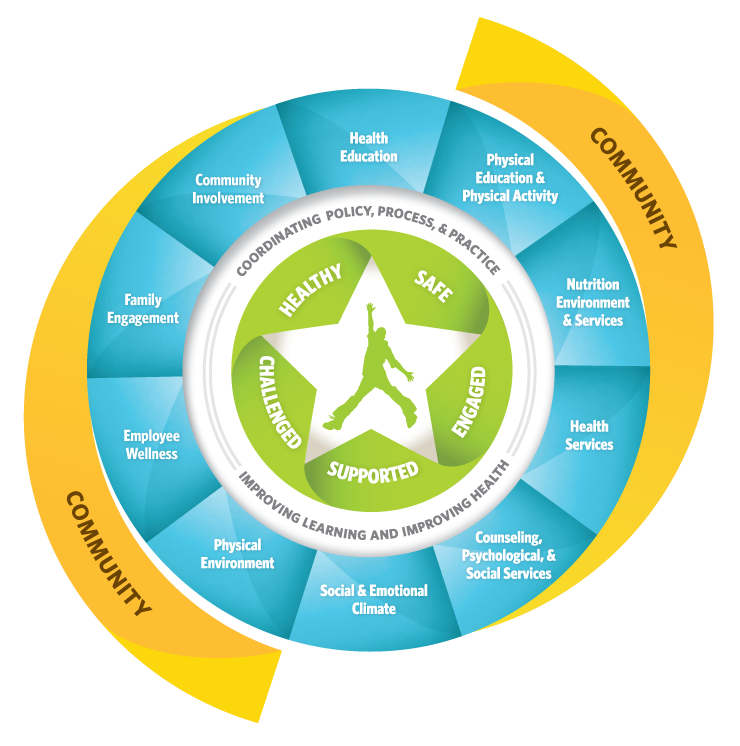Safe and Supportive School Climate
A positive school climate fosters a child’s positive experiences and promotes their safety and well-being to achieve academic successful. SISP understand these connections and can contribute to the development of a positive school climate both at the systems level and at the individual level by:
- Helping school teams conduct needs assessments and tailor whole school interventions based on the unique needs of the school community
- Contributing to the comprehensive, valid, and reliable measurement of academic, social, emotional, mental, and behavioral health indicators that can drive effective school improvement and address barriers to learning.
- Helping to develop school practices that enhance parent and family engagement
- Supporting our most vulnerable students to ensure they feel welcomed and respected in school.
- Working with teachers and administrators to support students’ social and emotional learning
SISP facilitate a supportive and inclusive environment, fostering a positive school climate and culture in which everyone can thrive and succeed.”
Creating Safe and Supportive Learning Environments for All Students
 Specialized Instructional Support Personnel (SISP) provide direct services, interventions, consultation, and training — to individual students, groups of students, staff, and parents and caregivers — to address academic, physical, behavioral, social and emotional needs within the school community.
Specialized Instructional Support Personnel (SISP) provide direct services, interventions, consultation, and training — to individual students, groups of students, staff, and parents and caregivers — to address academic, physical, behavioral, social and emotional needs within the school community.
Often working with the most vulnerable students, SISP work in partnership to identify students with academic, physical, social, and emotional barriers to learning. SISP promote a supportive, respectful, and inclusive environment in which everyone works and learns together and thrives — the whole school, whole child, and whole community (WSSC). They collaborate to address these barriers and ensure positive conditions for teaching and learning. This promotes a positive school climate and culture where students can feel supported, safe, healthy and ready to learn.
Bullying Prevention
SISP can have an impact on the health and safety of all students including students who bully, students who are bullied, or students who are both bullies and victims.
- Children with physical, developmental, intellectual, emotional, communication and sensory disabilities are more likely to be bullied than their peers.
- Bullying is the most common type of aggression and victimization experienced by school-age children and occurs at all age levels, peaking in the early adolescent middle school years.
- Bullying is a persistent public health concern that has a significant impact in the school setting.
- Bullying can have serious and often long-term consequences for both the student who bullies and the student who is bullied including increased school absenteeism, diminished educational achievement, behavior issues, low self-esteem, sleep deprivation, depression, anxiety, and self-harm. Bullied students are also at risk for physical symptoms. Students who bully are also at risk for both health and academic problems.
Because bullying produces such significant problems, short and long term for students, the knowledge that SISP bring to the table is paramount. SISP use evidence-based interventions to prevent and mitigate bullying in the school.
Discipline
Schools that implement research-based interventions to improve school culture experience a decrease in disruptive behavior, and reduced suspensions and expulsions, leading to a more inclusive and supportive school culture. SISP can help develop discipline practices that keep children in school so that they can continue to learn.
- Suspension and expulsion take children out of school, disrupts their learning, and places them at-risk of falling behind their peers academically.
- Keeping or “pushing” children out of school can have unintended consequences such as engaging in risky behaviors and increases their odds of entering the juvenile justice system.
- Rather than looking for punitive measures, SISP can help with preventative measures that keep students engaged and attending school.
The rescission of the 2014 Federal School Discipline Guidance issued specifically to protect students of color, students with disabilities, LGBTQ, and other vulnerable students dismantles essential protections to ensure safety and equitable learning environments for all students. There is considerable irrefutable research and evidence to support the fact these students are disproportionately affected by inappropriate and harsh discipline policies.
SISP contribute to the positive mental and behavioral health of all students through the development and implementation of school-wide approaches to school safety and violence prevention, positive behavioral interventions and supports, effective discipline policies, and social-emotional learning.
For more information, see Student Health and Well-Being.


